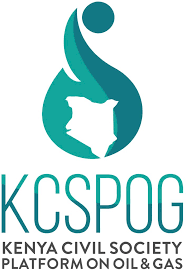The Role of Mining Investors in Water Governance
By Samantha Luseno, Resource Mobilization and Partnerships Engagement Officer
Published in The Standard Newspaper on 4th December 2020
Mining activities while extremely lucrative for mining companies and investors alike, predominantly take place in drought prone areas and could have devastating impacts on the environment including water quality and quantity. These impacts majorly affect surrounding communities. An extreme illustration of these is the impact on the Ogoni people of the Niger Delta in Nigeria where oil production takes place, it has been documented that not only is water quantity affected by production activities, water consumed and utilized by communities tends to contain residual oil from oil spills during production even years after clean up. The impact on water quality and quantity of Kenya’s evolving oil and gas industry has not been elaborately documented, it has been noted to be significant for other minerals including coal and gold.
With these potential and recorded impacts in mind, should mining activities in a country like Kenya that has water scarcity issues continue? Some experts have argued, yes for various reasons. World Bank through the Climate Smart Mining Initiative, predicts that energy transition will be significantly mineral intensive. The increase in demand for minerals for climate action such as lithium, copper, and Cobalt are considered an economic opportunity for resource rich countries.
However, even in the pursuit of energy transition to renewable energy source and away from fossil fuel the latter is still expected to supply almost 70 per cent of the world’s primary energy even in 2050 according to the Energy Information Administration (EIA). In a recent episode of Energy Talks #Ulizausichezwe podcast hosted by KCSPOG, Ms. Noreen Kidunduhu a Legal Practitioner in the field of Energy and Natural Resources remarked that “In the last decade a number of African countries including Kenya have come into oil, gas and coal discoveries, being underdeveloped these discoveries pose a dilemma as these resources are a pathway to developing their economies despite the countries needing to adhere to climate change requirements including reducing carbon emissions”. Therefore, even as we look to lower emissions, mining of key minerals and fossil fuels will remain an important enabler to the vision.
While mining operations may continue for these reasons, there is need for a multi-stakeholder approach that includes mining investors towards mitigating unintended consequences on water quality and quantity for surrounding communities. It is important that in the context of water governance, mining investors are keen to pose the right questions to mining companies, understand what evidence they should require, as well as what to expect.
More and more investors now are making it clear that they will not advance funds unless companies can demonstrate a meaningful and measurable commitment towards environmental issues including water management. Many are even streamlining their internal operations with a view to this end. In illustration, the International Finance Corporation, who currently finance part of Tullow Oil PLC’s operations, has published Performance Standards on Environmental and Social Sustainability applicable to its clients and other financial institutions. These standards succeeded the Equator Principles of 2003. The performance standards, specifically with regard to water governance, require that clients do the following: implement technically and financially feasible and cost-effective measures to enhances efficiency of the use of water; prevent, minimize and/or control the intensity of pollution on water sources; and undertake participatory water monitoring, among other key provisions.
In addition to individual efforts, due to the upsurge of social investors with an interest in the impact of mining activities investors have signed on to various initiatives to promote good environmental practices including in water governance. In 2019, institutional investors active in the extractive industries established the Investor Mining & Tailings Initiative, which has so far made a number of interventions relating to promotion of best practises in waste water governance. Investors are also currently monitoring Environmental, Social and Corporate Governance (ESG) performance of extractive industry clients. A good proportion of these investors work in accordance with the Principles of Responsible Investment (PRI) and are invested in contributing to Sustainable Development Goals (including SDG 6 on ensuring access to water and sanitation for all).
Investors have made great progress in laying out guiding frameworks to guide fellow investors participating in the extractive industry in environmental management. It is also commendable that think tanks and research institutions have undertaken initiatives to collect relevant data including the publishing of the Annual Responsible Mining Index which adds an extra layer of accountability. As a result of these initiatives mining companies consider not only threats to public trust but also potential threats to investor trust when reporting on environmental issues including those related to water governance.
These measures only come second to the adoption of effective relevant local environmental regulations. Kenya is currently in the process of reviewing environmental regulations including the guiding act Environmental Management and Coordination Act (EMCA), 1999. It is important that investors leverage their power to lobby for inclusion of best practises within these regulations relating to both responsible mining and water governance to better protect communities that stand to suffer the devastating impact of mismanagement of water resources through extractives activities.
